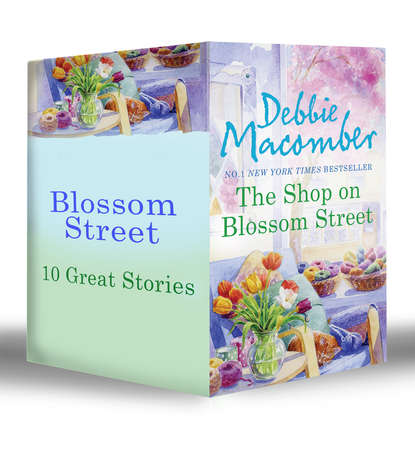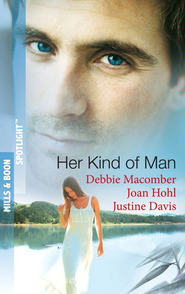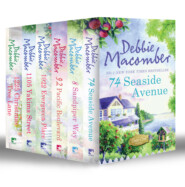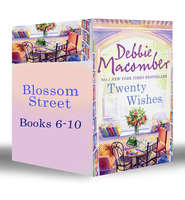По всем вопросам обращайтесь на: info@litportal.ru
(©) 2003-2025.
✖
Blossom Street
Автор
Год написания книги
2019
Настройки чтения
Размер шрифта
Высота строк
Поля
His words were more beautiful than any music she’d ever heard.
26
CHAPTER
“People who say they don’t have enough patience to knit are precisely those who could most improve their lives by learning how!”
—Sally Melville,
author of The Knitting Experience series
LYDIA HOFFMAN
This has been quite a week. It’s unheard of for me to have two social engagements within the same seven-day period. My lunch on Wednesday with Carol did so much good—for both of us. I feel I connected with her and extended a hand of friendship. She responded, and I’m confident we’ll stay in touch, whether or not she continues to knit.
The class earlier this afternoon was the best yet. Following the incident in the back alley, Alix and Jacqueline were cordial and just shy of friendly. Jacqueline relayed the details of the confrontation in minute detail, with Alix leaping in to add comments. Anyone looking at them would think they were longtime friends.
When I asked Jacqueline how her husband had reacted when she told him about the incident, she’d gone suspiciously quiet. I wasn’t sure what to make of that, but I have the feeling all is not well between Jacqueline and Reese Donovan.
The class flew by, and then I was seeing Brad for drinks. We were meeting at The Pour House for a beer at six after I’d closed for the day. Despite the drizzle we’d had intermittently since early morning, I was in a great mood.
The Pour House was about two blocks off Blossom, and seemed to be a popular hangout for the after-work crowd. The noise level was high with music blaring from a jukebox, high-spirited laughter and a television above the bar, which had a ball game on. I’m not very interested in sports, but I know lots of men are. Between the noise and the room’s darkness, I felt a bit disoriented.
Brad had found a booth near the back, and when he saw me, he stood, waving his arms over his head. I smiled and waved back, then quickly made my way across the room, negotiating tables and chairs.
“I was beginning to think you weren’t going to make it,” he said as he slid back into the booth.
“Am I late?” I glanced at my watch, and was surprised to see that it was almost fifteen minutes past six. I shook the rain off my jacket and Brad hung it up for me.
“It’s fine, don’t worry about it, but I’ve only got half an hour or so. The day care teacher said she’d keep Cody until seven-fifteen but not a minute longer and it takes me at least twenty minutes to get there.”
“How old is your son?”
“Eight. He keeps telling me he’s too old to be in day care, but I’m not letting him stay by himself all day.” Judging by Brad’s frown, I guessed this had been a frequent argument over the summer. “Sometimes I swear that kid’s eight going on eighteen.”
I thought of my own two nieces and while I might not be a mother, I understood what he was saying.
“Since we don’t have much time,” Brad said, “I’d rather not waste it talking about me. I want to learn about you.”
I considered myself the least intriguing of subjects. Nevertheless, I was flattered by his curiosity.
“I know there’s a lot of interest in knitting, but isn’t it risky to open a shop right now?” he asked before I could forestall him with questions of my own. I knew so little about Brad except what my eyes told me. He was as handsome as sin. From bits and pieces of conversation, I also knew he was divorced and apparently had custody of his eight-year-old son, but that was about it.
He certainly wasn’t the first person to express concern about my timing. Everyone worried that I was going to become a victim of our weak economy, that I was in over my head. But I’d been treading water since I was sixteen, so opening my own yarn store was no riskier than anything else in my life. Margaret had come right out and declared that I was making a mistake. But if I’d waited until all the conditions were ideal, it would never have happened. After two bouts with cancer, I knew I couldn’t wait for life to be perfect. I had to find my own happiness and quit waiting for it to find me.
I saw that he’d already ordered a pitcher of beer, which had just arrived. He paid the waitress and poured us each a glass. “My dad died just after Christmas,” I said as if that explained everything. “I was dealing with that loss, and then one day I found myself knitting furiously and remembered a conversation we’d had several years earlier.”
Brad sipped his beer and nodded for me to continue.
My throat got a bit scratchy but I ignored the emotion that filled me at the mention of my father. I don’t know if I’ll ever grow accustomed to having lost him. I paused for a moment.
“Go on,” Brad encouraged.
“At the time, I figured I was the one who didn’t have long to live.”
“You said you had cancer.”
“Twice.” I wanted to be sure he understood. I waited for a reaction from him, but he gave me none.
“Go on,” he said again. “You were talking about your father.”
I sipped my beer. He’d chosen a dark ale and I liked it. “I was in the hospital, and it was the night before my second brain surgery. Mom and Dad came to spend the evening with me. Mom was reading, and Dad and I were talking.” I remember that night so well because in my own heart I was convinced I’d be dead before the year was over. Dad was the one who believed in me, who insisted I was going to cheat death a second time.
“He asked me to describe one perfect day,” I told Brad. I knew he was forcing me to acknowledge that I wanted to live. The question was his way of drawing me into a future. A future I firmly believed was unavailable to me.
“What did you tell him?” Brad had leaned forward and cupped both hands around his mug.
I closed my eyes for a few seconds. “That I wanted to wake up in my own bed instead of one in a hospital.”
“Can’t blame you there.”
I grinned. Brad made it surprisingly easy to talk about myself. “Next I wanted to be able to smell flowers and be close to the water and feel sunshine on my face.”
“In the Pacific Northwest?” He smiled as he asked the question and I couldn’t help responding with a laugh.
“My perfect day happens in late summer, when we get plenty of sunshine.” This past Wednesday was a good example. “Now don’t distract me.”
“Yes’m.” His eyes fairly twinkled and for a moment I was so mesmerized I had to make myself look away.
“I’d wake to sunshine and the sounds of birds,” I continued, “and my perfect day would begin with a cup of strong coffee and a warm croissant. I’d take a leisurely stroll along the waterfront.”
“And after that?”
“I’d knit.” I remember how astonished my father had seemed when I told him that. He shouldn’t have been. By that time I’d been knitting for years. I remembered how my wanting to knit—seeing it as a perfect part of my perfect day—bothered him. Knitting, in his eyes, was such a solitary activity that I’d soon become a recluse.
“Knitting in your own store?” Brad murmured.
“Sort of.” One of the things I love most about being a knitter is the community of other knitters. Anytime I run into another person (usually a woman but not always) who knits, it’s like finding a long-lost friend. The two of us instantly connect. It doesn’t matter that only seconds earlier we were strangers, because we immediately share a common bond. I’d talked to other knitters in doctors’ offices, in line-ups at the grocery store—anywhere at all. We’ve exchanged horror stories of misprinted instructions and uncompleted projects. And we all loved to brag about fabulous yarn buys and, of course, discuss our current efforts.
“I wanted to help people discover the same sense of satisfaction and pride that I feel when I finish a project for someone I love.” That was the best way to describe it, I thought.
“How would you end your perfect day?”
“With music and champagne and candlelight,” I said shyly, which was only partially true. I’d told my dad I wanted to end the day dancing.
My father had told me I’d have that perfect day. What neither of us knew was that he wouldn’t be there to enjoy it with me.
“What’s wrong?” Brad asked, watching me.











